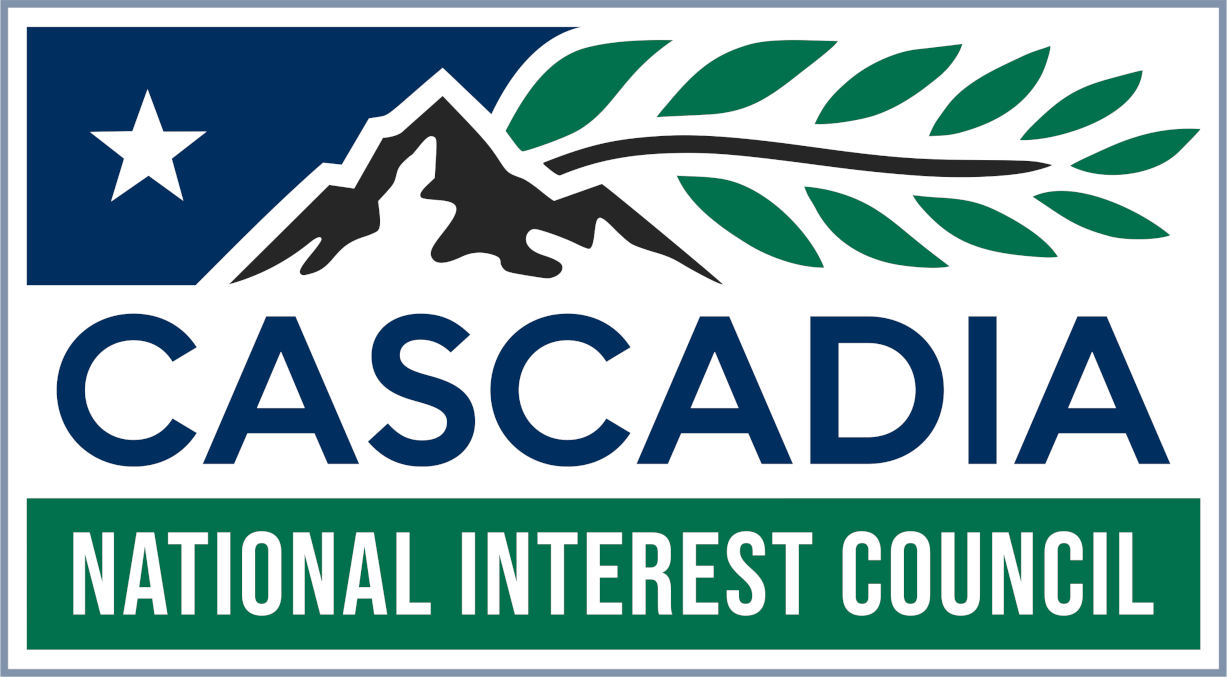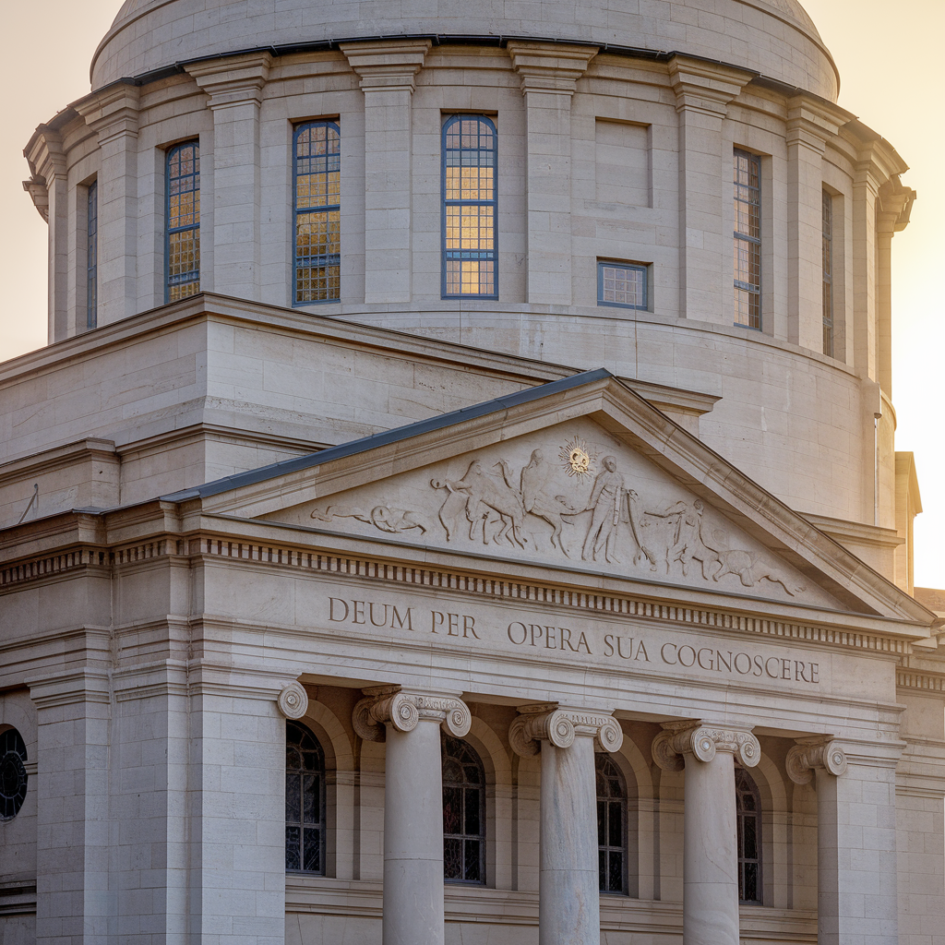Balancing Religious Freedom, National Identity, and Cohesion
A successful ethnostate must balance religious freedom with national cohesion and sovereignty while ensuring that religious beliefs do not conflict with national interests. This approach requires policies that encourage a shared national ethos while remaining hands-off regarding personal beliefs, except where they threaten the unity or survival of the nation.
This model recognizes the historical role of Christianity in Western civilization while respecting the revival of European pagan traditions. It also prohibits totalitarian, anti-national, or ethnocentric religions (such as Islam and Judaism) that undermine national unity. Finally, it draws from Enlightenment-era deism, fostering a higher sense of purpose and awe for the cosmos that encourages collective responsibility over individual atomization.
1. Core Principles of Religious Policy
a. Freedom of Belief Within National Boundaries
- Citizens have the right to practice or abstain from religion.
- Religious belief is private and cannot dictate national policy.
- Religions that align with national values (e.g., Christianity, Paganism) are encouraged.
- Religions that conflict with national identity (Islam, Judaism, or globalist ideologies) are prohibited.
b. Recognition of Natural Law and Shared Heritage
- A sense of the sacred can reinforce national values without requiring strict religious dogma.
- Enlightenment deism serves as a philosophical anchor, emphasizing:
- Natural order, reason, and cosmic awe as guiding principles.
- The idea of higher purpose beyond materialism or blind individualism.
- The importance of legacy and duty to one’s people and future generations.
c. Religion Must Serve National Cohesion
- Religious plurality is allowed only insofar as it does not undermine unity.
- No foreign religious influence that threatens national sovereignty.
- Religious differences should not take priority over shared national identity.
2. Role of Religion in National Identity
a. Christianity and European Paganism as Cultural Foundations
- Christianity has historically shaped Western law, ethics, and civilization.
- European Pagan traditions embody ancestral spirituality and natural order.
- Both are recognized as integral parts of national heritage, reinforcing:
- A moral framework based on duty, honor, and responsibility.
- A connection to ancestry through traditional festivals, values, and historical narratives.
b. Enlightenment Deism as a Philosophical Bridge
- Enlightenment-era deism provides a universal sense of wonder and cosmic purpose.
- Encourages citizens to think beyond short-term individualism toward civilizational continuity.
- Scientific discovery and philosophical awe complement both religious and secular worldviews.
c. The Role of Civic Spirituality
- A national ethos should reinforce:
- A sense of sacred duty to the nation and its people.
- Rituals, symbols, and commemorations that unite citizens beyond religion.
- Respect for ancestral wisdom and the long-term destiny of the nation.
3. Practical Policies
a. Religious Freedom with Safeguards
- Allowed: Christianity, Paganism, Deism, other neutral or historically Western belief systems.
- Prohibited: Islam, Judaism, radical atheism, or any ideology that promotes:
- Hostility toward the national population.
- Subversion of state authority.
- Dual loyalty or non-assimilation.
- Foreign religious funding is banned to prevent external influence.
b. National Education on Cultural and Philosophical Foundations
- Schools teach philosophy, natural law, and the history of Western civilization.
- Civic spirituality is emphasized, ensuring that belief in a greater purpose remains central to national identity.
- Science and reason are championed alongside cultural heritage.
c. State Neutrality in Theological Disputes
- The state does not take sides in theological differences between Christians, Pagans, or Deists.
- National identity is based on shared cultural and ethnic heritage, not strict religious adherence.
4. Managing Religious Diversity
a. Preventing Sectarianism
- Religious disputes must never interfere with national unity.
- The nation comes before religious differences, ensuring that:
- Citizens see each other as kin first, rather than as members of different religious sects.
- Common civic rituals replace divisive theological disputes.
b. Assimilation of Non-Religious Citizens
- Atheists and agnostics are included in the national ethos, but radical materialism, nihilism, or anti-religious activism is discouraged.
- Civic spirituality provides a non-religious path to national belonging.
c. Handling Foreign Religions
- Non-European religions are not granted political or social influence.
- Individuals from foreign religious backgrounds must fully assimilate or relocate.
5. Spiritual Alienation and the Need for Purpose
a. Addressing the Modern Crisis of Atomization
- Liberal individualism has led to social atomization, spiritual emptiness, and declining birth rates.
- Materialism alone is insufficient—people need a higher sense of belonging and purpose.
- This framework restores a sense of sacred duty through:
- Family, ancestry, and civilization-building as higher callings.
- National rituals that reinforce spiritual connection to one’s people.
b. Recognizing the Sacred Without Theocracy
- While the state is secular in governance, it promotes a national ethos where:
- Awe for the universe replaces nihilistic materialism.
- The survival of the people is understood as an almost sacred duty.
- The continuity of civilization is seen as a long-term, intergenerational responsibility.
6. Implementation in Society
a. National Holidays and Public Rituals
- Public celebrations should emphasize both Christian and ancestral traditions.
- Rituals honoring solstices, historical victories, and great thinkers cultivate collective identity.
- National moments of reflection reinforce unity without theological divisions.
b. Monuments, Architecture, and Public Spaces
- National landmarks should embody both cultural heritage and scientific progress.
- Temples, cathedrals, and civic buildings should reflect the beauty of the Western spirit.
- Scientific and astronomical sites should inspire awe and wonder.
c. Public Education and the Transmission of Legacy
- Schools teach natural law, philosophy, ethics, and history in a way that fosters:
- A sense of ancestral responsibility.
- The interplay between reason and spirituality.
- The idea that life’s purpose is greater than oneself.
7. Addressing Potential Challenges
a. Preventing Religious Radicalism
- Any movement that seeks to replace national loyalty with religious supremacy is banned.
- The nation is not subservient to any religious institution.
b. Maintaining Unity Among Different Religious Beliefs
- Common civic rituals unite believers and non-believers alike.
- National identity is rooted in ancestry, not religious doctrine.
c. Avoiding Nihilism and Rootlessness
- State-sponsored philosophical and cultural initiatives ensure that modern rationalism does not degenerate into spiritual emptiness.
Conclusion: A Nation Rooted in the Sacred and the Rational
This model ensures that an ethnostate respects religious diversity within its heritage while maintaining national cohesion and philosophical depth. By combining Christian, Pagan, and Deist elements, and rejecting hostile religions, the state fosters awe, duty, and identity without theocratic rule.
The nation becomes a sacred project, not just an economic zone. Its people are united by ancestry, culture, and cosmic wonder, ensuring long-term civilizational survival.


Leave a Reply